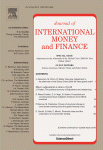Glendinning, S. (2015) ‘Neoliberal’ variants have dominated Europe’s history but they have paved the way for a new conception of human progress, LSE EUROPP, 16 March. The term ‘neoliberalism’ is frequently used in contemporary political discussions, but while polemically effective, conceptually it lacks rigour. Simon Glendinning writes on the relationship between the concept and classical liberalism. He argues that by defining neoliberalism in terms of this relationship it becomes …Read More
Confidence, aggregate demand, and the business cycle: A new framework
Angeletos, G. M., Collard, F. & Dellas, H. (2015) “Confidence, aggregate demand, and the business cycle: A new framework, VoxEU Organisation, 16 March. The Global Crisis has forced a revaluation of the standard macroeconomic models in use worldwide. This column discusses an enrichment that include a formal concept of ‘confidence’ about the short-medium term economic outlook – one that relates to market psychology rather than expectations about technology and …Read More
IMF Country Report No. 15/72: ICELAND
IMF Country Report No. 15/72: ICELAND – STAFF REPORT FOR THE 2014 ARTICLE IV CONSULTATION AND FIFTH POST-PROGRAM MONITORING DISCUSSIONS, 16 March 2015. KEY ISSUES Iceland has reached a relatively strong macroeconomic position with good growth prospects. But crisis legacies are still being unwound, including high debt and a large balance of payments (BOP) overhang contained by capital controls. Amidst public pressure for a return to normalcy, policies remain …Read More
Is there an easy way out? Private marketable debt and its implications for a Eurozone break-up
Amiel, D. & Paul-Adrien, H. (2015) “Is there an easy way out? Private marketable debt and its implications for a Eurozone break-up“, VoxEU Organisation, 15 March. As the Eurozone crisis lingers on, euro exit is now being debated in ‘core’ as well as ‘periphery’ countries. This column examines the potential costs of euro exit, using France as an example. The authors estimate that 30% of private marketable debt would …Read More
For a few dollars more: Reserves and growth in times of crises
Matthieu Bussière, Μ., Cheng, G., Chinn, D. M. & Lisack, N. (2015) “For a few dollars more: Reserves and growth in times of crises“, Journal of International Money and Finance, Vol. 52, Απρίλιος 2015, σελ. 127–145. Highlights Countries with higher reserves saw a smaller growth shortfall in the great recession. Reserve to short-term debt is the most significant reserve adequacy ratio. Reserves’ marginal effect on growth is somewhat reinforced …Read More
Sovereign debt, bailouts and contagion in the Eurozone
Kobielarz, M., Uras, B. & Eijffinger, S. (2015) “Sovereign debt, bailouts and contagion in the Eurozone“, VoxEU Organisation, 12 March. The Eurozone Crisis has been characterised by a sharp rise in sovereign interest rates in peripheral countries. The re-emergence of spreads between peripheral and core Eurozone countries at the start of the Greek crisis came after a decade of homogeneous interest rates in the monetary union. This column investigates …Read More
European Central Bank quantitative easing: the detailed manual
Claeys, G., Leandro, A. & Mandra, A. (2015) “European Central Bank quantitative easing: the detailed manual“, Bruegel Institute, 11 March. The European quantitative easing programme, the Public Sector Purchase Programme (PSPP), started on 9 March 2015 and will last at least until September 2016. Purchases will be composed of sovereign bonds and securities from European institutions and national agencies. The European Central Bank Governing Council imposed limits to ensure …Read More
Will Podemos rescue Spain’s unemployed youths?
Weisbrot, M. (2015) “Will Podemos rescue Spain’s unemployed youths?“, Forbes Magazine, Commentary, 09 March. In just two months since it was created, the leftist party pushing for an end to austerity in debt-troubled Spain has won 8% of the vote in Europe’s parliamentary elections. Earlier this year, the electoral victory of Syriza in Greece marked the first government elected within the troubled eurozone to finally say no to European …Read More
Monetary policy and credit costs
Gertler, M. & Karadi, P. (2015) “Monetary policy and credit costs“, VoxEU Organisation, 10 March. Evidence of the impact of monetary policy on economic activity supports conventional models with nominal rigidities. This column highlights the importance of the ‘credit channel’ of monetary policy. Unanticipated tightening produces a significant drop in real activity. However, monetary policy responses produce large movements in credit costs, which are due to the reaction of …Read More
Europe is being torn apart – but the torture will be slow
Garton Ash, T. (2015) “Europe is being torn apart – but the torture will be slow“, The Guardian, 08 March 2015. This monetary union without a political one will continue to cause suffering and divide the north from the south “If the euro fails, Europe fails”: thus spake Angela Merkel. Unfortunately, the euro is failing, but it is failing slowly. Even if Greece grexits, the eurozone seems unlikely to …Read More





